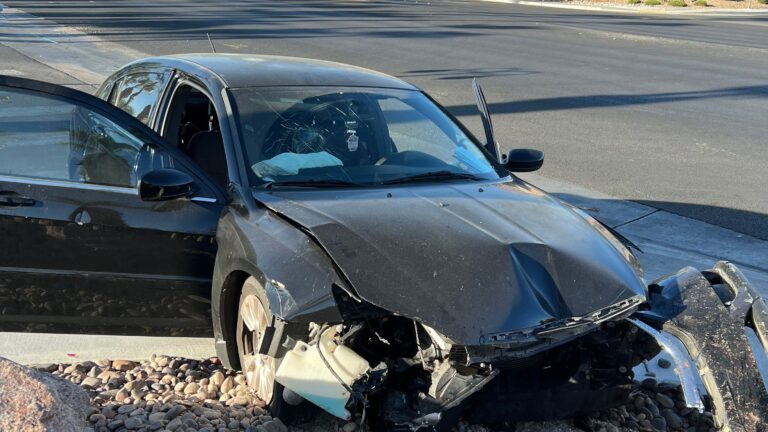SEC Crypto Mining Case Paused After Feds Bring Charges – Law360
More Information


There is an automobile accident on I-30, Interstate 635, or the tollways every single day. Some of these car accidents result in someone sustaining permanent and significant injuries. The effects of these injuries can be devastating and life-changing. If you or your loved one has been injured in any of the following accidents, you may be entitled to financial recovery.
In a personal injury lawsuit in Texas, a plaintiff may be able to recover the following types of damages:
It’s important to note that Texas has a statute of limitations of two years for personal injury lawsuits, meaning that a lawsuit must be filed within two years of the date of the injury or the right to sue is barred. Additionally, Texas has a modified comparative fault rule, which means that the amount of damages a plaintiff may recover can be reduced by their own degree of fault in causing the injury.
Under Texas law, everyone has an obligation to look out for the safety of others. When a breach of safety occurs, you have a viable personal injury claim. A person’s blatant disregard for your safety (intentional or unintentional) will bolster your case.
A winning case comprises the following elements:
The defendant must behave a certain way to preserve the safety of others.
The defendant failed to honor a duty to care.
The injury must stem the perpetrator’s breach of duty.
The defendant should have known his or her actions would have caused grievous harm to another party.
You must suffer physical injury to qualify for compensation.
To win your case, you must meet all five of the negligence criteria. If you, however, share the blame in a personal injury claim, or have comparative fault, the courts could lower your compensation amount.
It’s important to note that Texas has a statute of limitations of two years for personal injury lawsuits, meaning that a lawsuit must be filed within two years of the date of the injury or the right to sue is barred.
In a personal injury lawsuit in Texas, a plaintiff may be able to recover the following damages:
Economic damages: This is money awarded for the reimbursement of expenses such as medical bills, lost wages, and property damage. To prove your economic damages, gather as much documentation as you can. For example, save all medical bills and invoices to show the court. Your doctor can also document your injuries in greater detail. If you suffered property damage, take pictures of the scene or the damaged property.
Non-economic damages: This is monetary compensation for intangible losses such as pain and suffering, emotional distress, mental anguish, disfigurement, and the loss of enjoyment of life. Mental anguish must be beyond anger, embarrassment, or disappointment. Courts may grant awards for suffering that will continue into the foreseeable future.
Punitive money damages: This is money awarded to the plaintiff that is designed to punish the defendant for especially outrageous conduct and to deter similar conduct in the future. Texas law usually allows exemplary money two times the economic damage amount, including an equal sum to non-economic damages.
Wrongful death damages: If the injury leads to the death of the plaintiff, the surviving family members may be able to recover money for expenses related to the death, as well as compensation for the loss of companionship and support.
It is important to note that non-economic damages usually have a cap of $750K. In other cases, the exemplary rewards may have a cap of $200K.
You can file a personal injury claim against any person or entity. You can also sue government agencies in Texas under limited circumstances.
When dealing with government institutions, the courts will cap the damages at $500K for a single incident and $250K for one person. In most cases, governments are immune from personal injury claims.
Filing against a company is easier, but you need a lawyer by your side to get the money you deserve. Many companies (especially large firms) have enough resources to hire stellar legal teams that can pick apart your case. You can counter defense claims with an experienced lawyer who has enough resources to strengthen your case.
When it comes to individuals, you have a much easier time filing a claim. You can file a claim against any individual who caused bodily harm.
Insurance carriers pay minimal benefits to save money. As a result, you could receive less compensation than you deserve. Small payouts can leave you with little money to take care of your injuries.
That’s why you need an attorney, as they can champion your interests to maximize insurance payouts. More importantly, allow a legal professional to deal with the stress of insurance negotiations so you can focus on the healing phase.



In a personal injury lawsuit in Texas, a plaintiff may be able to recover the following types of damages:
Economic damages: Money awarded for the reimbursement of expenses such as medical bills, lost wages, and property damage.
Non-economic damages: Monetary compensation for intangible losses such as pain and suffering, emotional distress, mental anguish, and the loss of enjoyment of life.
Punitive money damages: Money awarded to the plaintiff that is designed to punish the defendant for especially outrageous conduct and to deter similar conduct in the future.
Wrongful death damages: If the injury leads to the death of the plaintiff, the surviving family members may be able to recover money for expenses related to the death, as well as compensation for the loss of companionship and support.
It’s important to note that Texas has a statute of limitations of two years for personal injury lawsuits, meaning that a lawsuit must be filed within two years of the date of the injury or the right to sue is barred. Additionally, Texas has a modified comparative fault rule, which means that the amount of damages a plaintiff may recover can be reduced by their own degree of fault in causing the injury.

Gather all documents related to the case and be ready to tell us about them.
Be ready to discuss the timeline of events that have taken place up until now.

Please fill out the form below, and we will reach out to you to discuss the next steps.
We welcome the opportunity to speak with you about your legal problems. We are confident that after doing so, you will see what sets us apart.
8350 N Central Expwy 19th Floor Dallas, TX 75206
817-953-8699
817-668-0659
550 Reserve Street Suite 190 Southlake, TX 76092
817-953-8567
817-668-0659
The U.S. Sentencing Commission implemented key changes to the Sentencing Guidelines that took effect on November 1, 2024. These...
DISCLAIMER: The information you obtain at this site is not, nor is it intended to be, legal advice. You should consult an attorney for advice regarding your individual situation. We invite you to contact us and welcome your calls, letters and electronic mail. Contacting us does not create an attorney-client relationship. Please do not send any confidential information to us until such time as an attorney-client relationship has been established.
DISCLAIMER: The information you obtain at this site is not, nor is it intended to be, legal advice. You should consult an attorney for advice regarding your individual situation. We invite you to contact us and welcome your calls, letters and electronic mail. Contacting us does not create an attorney-client relationship. Please do not send any confidential information to us until such time as an attorney-client relationship has been established.